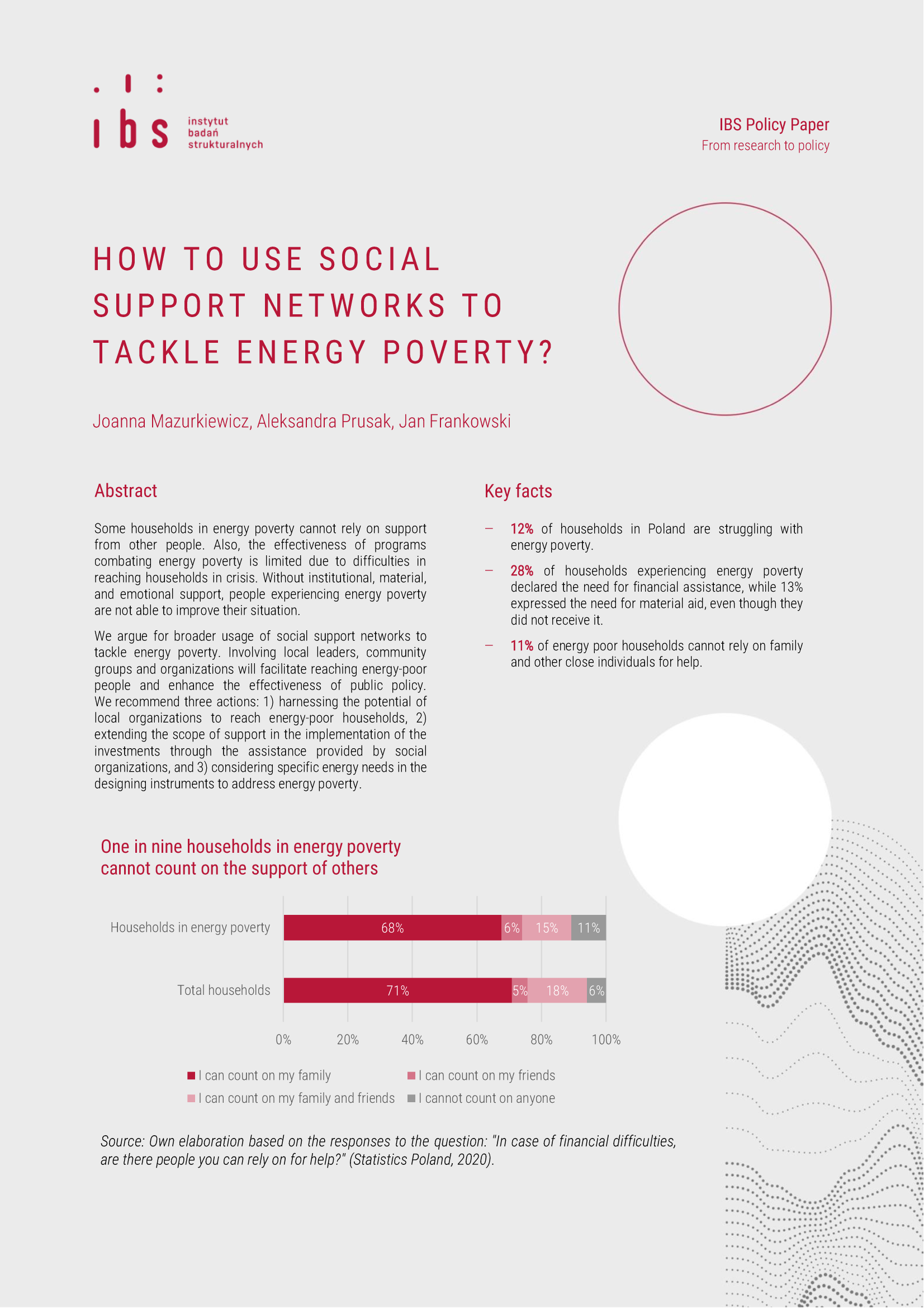Some households in an energy poverty crisis cannot rely on support from other people. Also, the effectiveness of programs combating energy poverty is limited due to difficulties in reaching households in crisis. Without institutional, material, and emotional support, people experiencing energy poverty cannot improve their situation. We argue for broader usage of social support networks to tackle energy poverty. Involving local leaders, community groups and organizations will facilitate reaching energy-poor people and enhance the effectiveness of public policy. We recommend three actions:
1) harnessing the potential of local organizations to reach energy-poor households,
2) extending the scope of support in implementing the investments through the assistance provided by social organizations, and
3) considering specific energy needs in designing instruments to address energy poverty.

We want to thank Jan Rutkowski and Aleksandra Krugły for their valuable comments and assistance in preparing the text. We also thank the Federation of Social Organizations of the Warmian-Masurian Voivodeship (FOSa) and the Niesiemy Nadzieję Foundation for their help in organizing the research. Project funded by the European Climate Foundation. This publication’s content reflects the author’s opinions, which may diverge from the position of the Institute for Structural Research. The usual disclaimers apply.

